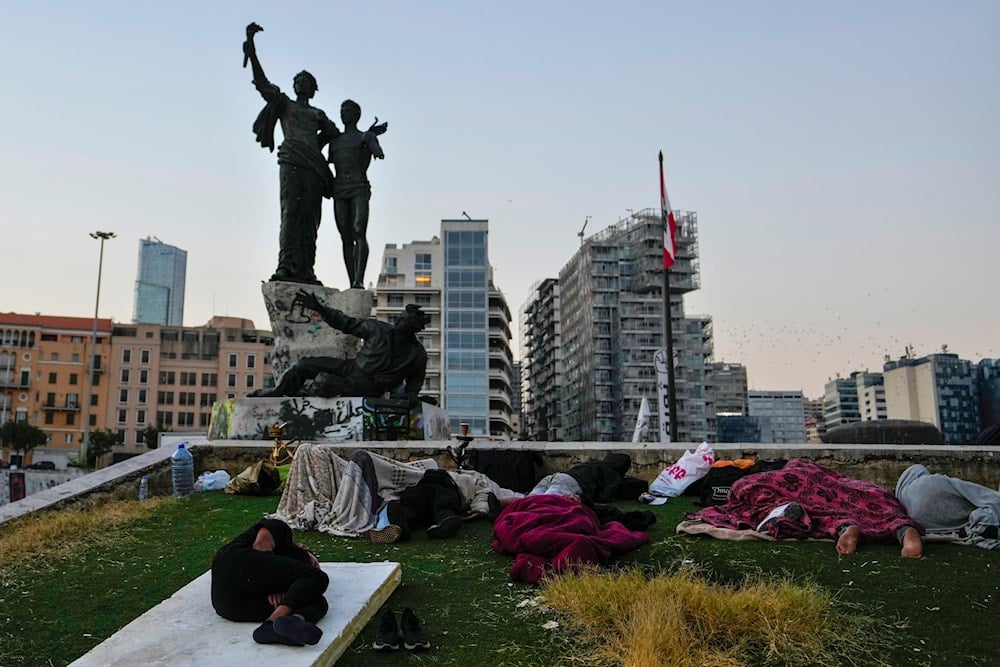UNICEF chief 'deeply concerned' over humanitarian situation in Lebanon
UNICEF Executive Director Catherine Russell is concerned with the deteriorating humanitarian situation in Lebanon amid the ongoing Israeli aggression on the country.
-

People sleep in Beirut's Martyrs' Square after fleeing the Israeli airstrikes in Beirut's Southern Suburb, Lebanon, on September 30, 2024. (AP)
UNICEF Executive Director Catherine Russell expressed concern on Monday about the massacre of children in recent Israeli attacks on Lebanon. "I am deeply concerned by the rapidly deteriorating humanitarian situation in Lebanon. Over the last week, at least 80 children have reportedly been killed in attacks, while hundreds more have been injured," Russell said on X.
She said that the number of people internally displaced by the violence has spiked to more than one million, including over 300,000 children, citing government reports. "Thousands of children and families are now living in the streets or in shelters; many having fled their homes without essential supplies and belongings. Humanitarian conditions are growing worse by the hour," Russell said.
Stressing that UNICEF and its partners are active in Lebanon, reaching children and families with essential support, she noted that teams deliver drinking water, medical supplies, mattresses, blankets, and hygiene and baby kits. "We are providing health and nutrition, child protection, and psychosocial support services for children.
Read next: UNICEF head laments Lebanon children victims, fails to name 'Israel'
"But as the violence intensifies, so do the humanitarian needs. Any ground offensive or further escalation in Lebanon would make a catastrophic situation for children even worse. Such an outcome must be avoided at all costs," she said, calling for an urgent cessation of hostilities.
UNICEF reiterates its call for all parties to protect children and civilian infrastructure and to ensure that humanitarian workers can safely reach those in need, in accordance with their obligations under international humanitarian law, she added.
Earlier on Monday, The Guardian reported that the events of the last several months, as well as the recent assault on Lebanon, illustrate that "Israel" poses a threat to its neighbors and not vice versa. The report recalls the killing of 558 Lebanese people in one day, 50 of whom were children. First responders, humanitarian workers, and government personnel are also not spared.
After the attack that killed Hezbollah leader Sayyed Hassan Nasrallah on Friday destroyed six Beirut residential buildings, The Guardian contended that "a Gaza in microcosm is quickly unfolding," with thousands fleeing for safety, traumatized children, heavy fatalities, and an escalation in which there is no limit to the civilian lives that may be lost to achieve "Israel's" aims.

 3 Min Read
3 Min Read








